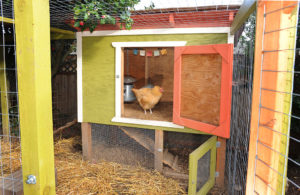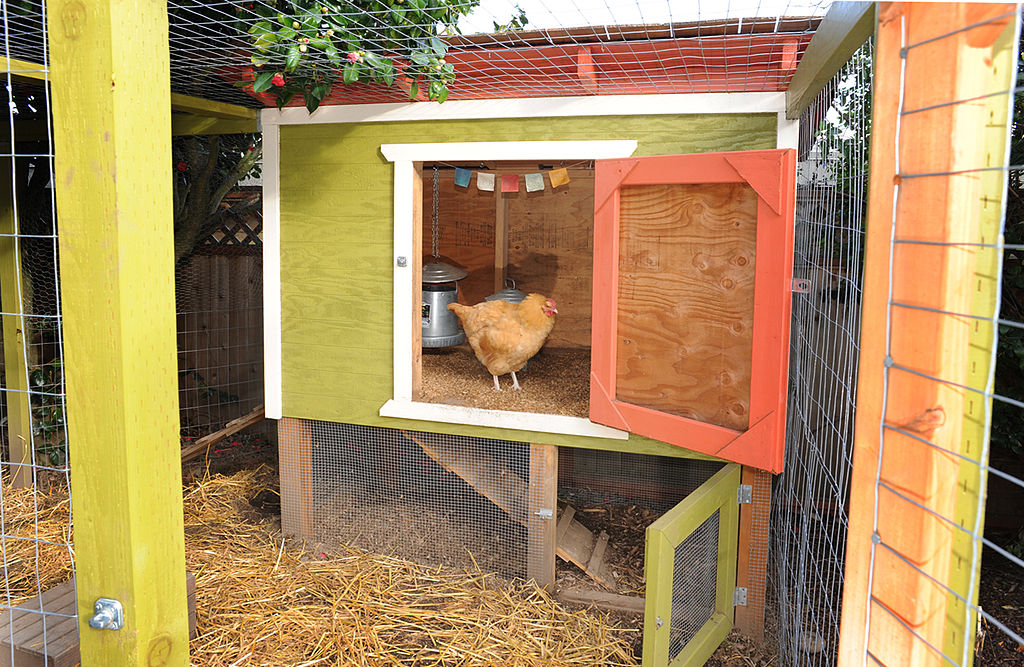Keeping chickens is a hobby that has exploded in popularity in recent years. More and more people want to keep their own chickens, driven partially by an increase in concern about environmental sustainability and animal welfare on commercial farms, as well as a desire to control the quality of their own food, and become more independent. And many people have simply learned that chickens make fantastic pets and garden helpers. So, the next question to ask yourself is, should I have a backyard chicken coop?
As people increasingly advocate for reduced restrictions regarding backyard chicken coops, cities and counties are changing their regulations and restrictions. And, as relaxed restrictions make it easier, more people start to keep chickens, in a cycle that has led to a virtual explosion of urban chicken keeping. In the UK alone, sales of the popular Eglu brand hen house increased ten-fold from 2004 to 2009.
Benefits of Keeping Chickens
People typically keep chickens for eggs, for meat, or as pets, and sometimes for all three. Whatever the reason, a backyard chicken coop offers a wealth of benefits:
Chickens are easy to keep
Among livestock and animal companions, chickens are relatively easy and inexpensive to raise and keep healthy
Chickens are docile and sociable
Most common breeds of chicken are friendly and easy to handle, making them good pets, but also easy to live with and harvest eggs from.
Backyards and gardens often offer a higher quality of life for the chickens
Many people are concerned about the living conditions of chickens in commercial settings and feel that raising their own chickens makes sure that their meat and eggs are more ethically sourced.
Creates a higher quality of food
Many chicken owners like knowing what their chickens are eating, and what medications they are receiving, so that they aren’t introducing unnecessary antibiotics into their food supply. And most people feel that fresh eggs simply taste better.
Chickens are natural garden helpers
Chickens are active foragers and eat weeds and pest insects in the garden. Their droppings nourish the soil, and their scratching helps aerate it. They provide active, low-cost, low-maintenance benefits for fields and gardens, in an organic and natural way.
With all these benefits, it’s easy to see why so many people are building chicken coops in their backyards.
Cost to Build a Chicken Coop in Your Backyard
The cost of building a chicken coop in your back yard depends on the size of the coop, which depends on how many chickens you have. You can buy a ready-made chicken coop, or a kit to build one yourself, for as little as a few hundred dollars, up to several thousand. Or you can build your own chicken coop for a hundred dollars or less, depending on the size and the materials.
Features of a Good Chicken Coop
Whether you buy a ready-made chicken coop, or a kit, or build one yourself, here are a few things to be mindful of.
The coop area needs to have a solid floor, walls, and roof
While a chicken run is generally an enclosure on the ground, allowing chickens the freedom to scratch and forage, the coop area needs to have a solid floor, walls, and roof that will exclude pests and predators.
A chicken coop needs to have windows for ventilation

Chickens need friends
Chickens are naturally flocking birds, so it’s important to have at least three of them to keep them healthy and happy. If you have severely limited space, don’t build a chicken coop designed for just one hen. If space is an issue, consider bantams or even quails, which are smaller and don’t need as much room, but will still allow you to keep three or more birds.
Overcrowding chickens leads to health and behavior problems
While chickens do need to be with others of their kind, make sure your coop is large enough for the size of your flock. Give every chicken approximately 2-4 square feet of floor space indoors and 4-6 square feet of floor space outdoors in the run. If they are going to live indoors for extended periods of time, during long harsh winters, for example, they will need 5-10 square feet per chicken inside the coop.
Ease of access and livability for humans
Whatever kind of coop you have or build, you will need to access it often to feed chickens, harvest eggs, and clean the coop. If you build a chicken tractor, for example, it should be sturdy enough to exclude predators, but still light enough for you to move around. Make sure your chicken coop design takes your own needs into account.
Conclusion
With those things in mind, it is not difficult or expensive to build a chicken coop in your backyard. You can find hundreds of plans online with materials lists, and even how-to videos. Whether you purchase a chicken coop or build one yourself, make sure you use materials that are sturdy enough to protect your chickens and keep them safe from pests and predators. Provide lots of natural light, prevent moisture, and ensure plenty of ventilation, and your chickens will be thriving in no time.
Building a chicken coop is a fun and rewarding experience, and keeping chickens is a great way to have fresh, natural eggs, improve the quality of your soil, and enjoy having animal companions. More and more people are discovering the pleasure and advantages of keeping their own chickens, and you could be one of them.

